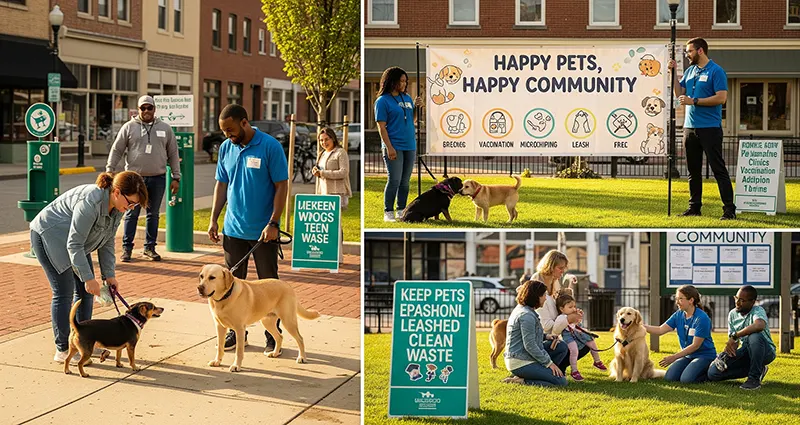Responsible pet ownership is essential to ensuring the health, safety, and well-being of pets, their owners, and the wider community. In the United States, promoting responsible pet ownership practices has become a priority for animal welfare organizations, local governments, and community groups. Encouraging responsible behavior not only improves the lives of pets but also fosters safer, cleaner, and more compassionate neighborhoods.
Why Promote Responsible Pet Ownership?
Promoting responsible pet ownership benefits pets, pet owners, and the community in numerous ways:
- Animal Welfare: Proper care ensures pets are healthy, happy, and free from neglect or abuse.
- Community Safety: Well-trained and socialized pets reduce incidents of aggression or nuisance behaviors.
- Public Health: Vaccinations, regular vet visits, and proper waste disposal prevent the spread of diseases.
- Environmental Impact: Responsible owners minimize wildlife disturbances and reduce stray animal populations.
Key Practices to Promote in US Communities
1. Spaying and Neutering
One of the most effective ways to promote responsible pet ownership is to encourage spaying and neutering. This practice helps control overpopulation, reducing the number of unwanted animals that may end up in shelters or as strays.
2. Proper Identification
Pet owners should be encouraged to provide their animals with proper identification, such as collars with tags and microchips. This greatly increases the chances of lost pets being reunited with their owners.
3. Regular Veterinary Care
Access to veterinary care is vital for maintaining pet health. Communities can promote regular vaccinations, parasite prevention, and wellness check-ups to ensure pets live long and healthy lives.
4. Training and Socialization
Educating pet owners about the importance of training and socialization helps reduce behavioral issues. Well-behaved pets are less likely to be surrendered or cause problems in the neighborhood.
5. Responsible Feeding and Exercise
Promoting proper nutrition and regular exercise helps prevent obesity and related health problems in pets, contributing to their overall well-being.
6. Waste Management
Encouraging pet owners to clean up after their animals not only keeps public spaces clean but also reduces environmental contamination.
Community Initiatives to Support Responsible Ownership
- Educational Campaigns: Workshops, seminars, and informational materials help raise awareness about pet care responsibilities.
- Low-Cost Spay/Neuter Clinics: Providing affordable access to sterilization services prevents pet overpopulation.
- Pet Licensing Programs: Local governments enforcing pet licenses promote accountability.
- Support Services: Resources such as training classes, behavior consultations, and temporary foster care assist pet owners in times of need.
- Promotion of Adoption: Encouraging adoption from shelters rather than purchasing from breeders helps reduce pet homelessness.
Promoting responsible pet ownership practices in US communities is a collaborative effort that requires awareness, education, and accessible resources. By fostering a culture of responsible pet care, communities can improve the lives of animals and create safer, healthier environments for everyone. Encouraging practices like spaying/neutering, proper identification, and regular veterinary care can make a significant impact in addressing the challenges faced by pets and their owners across the country.












